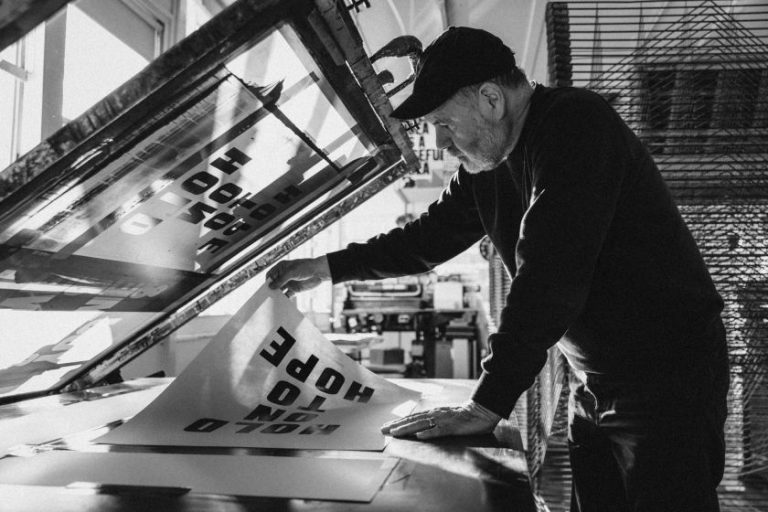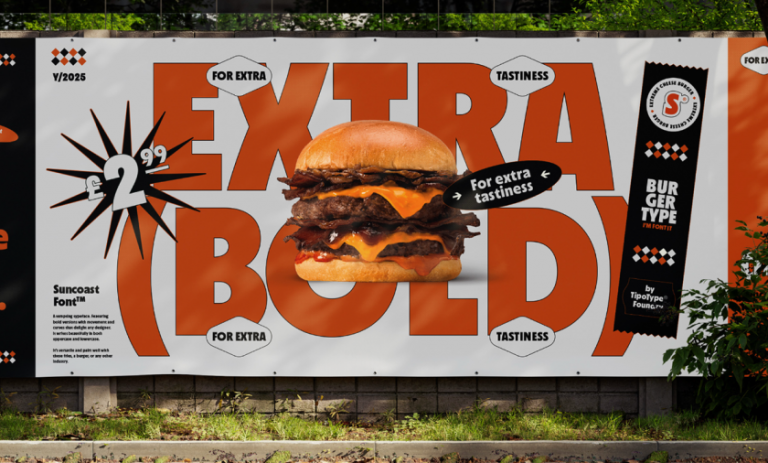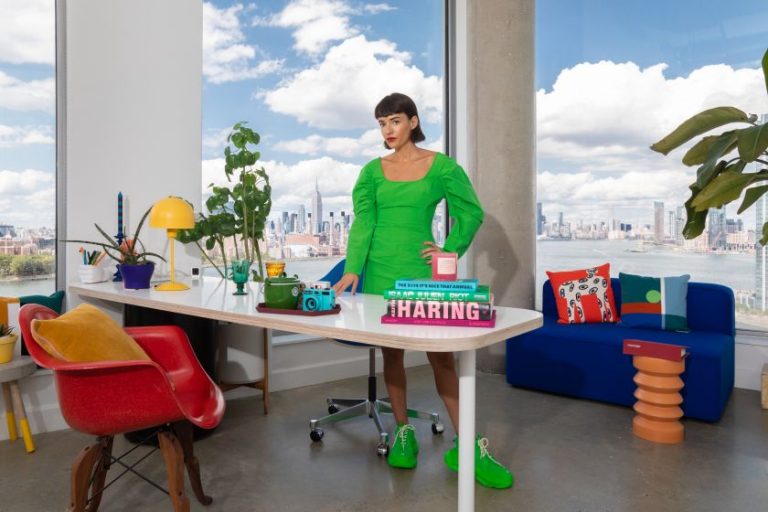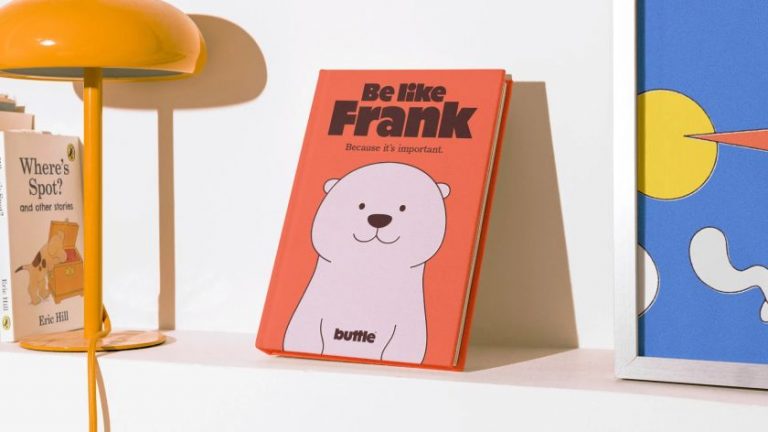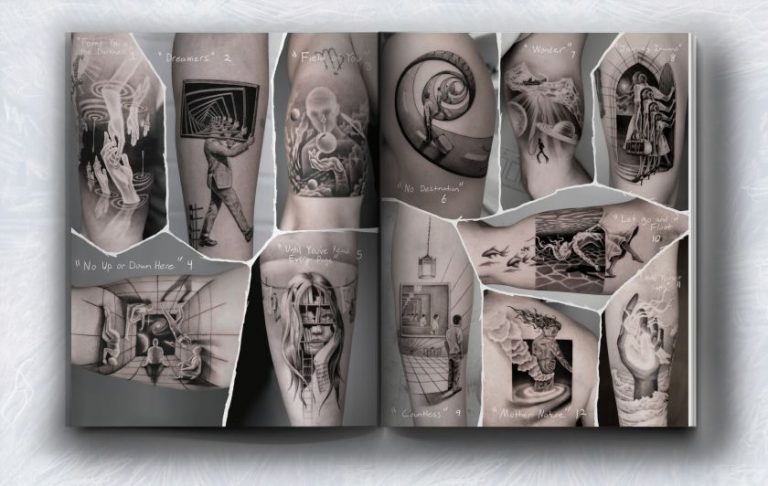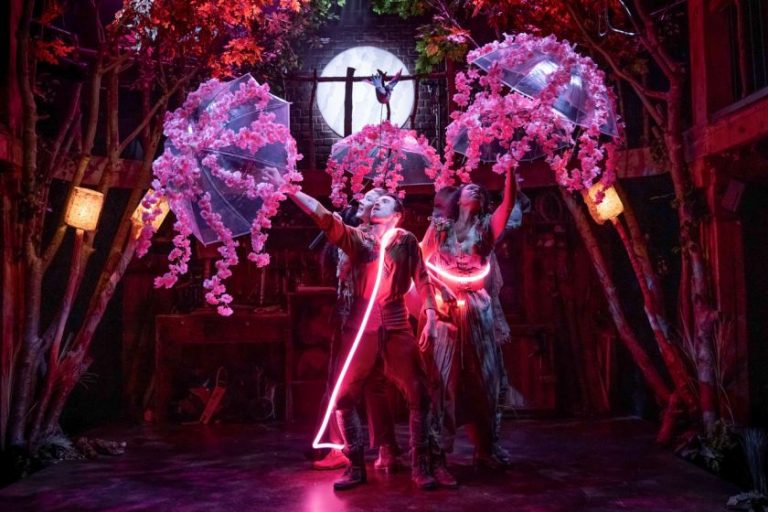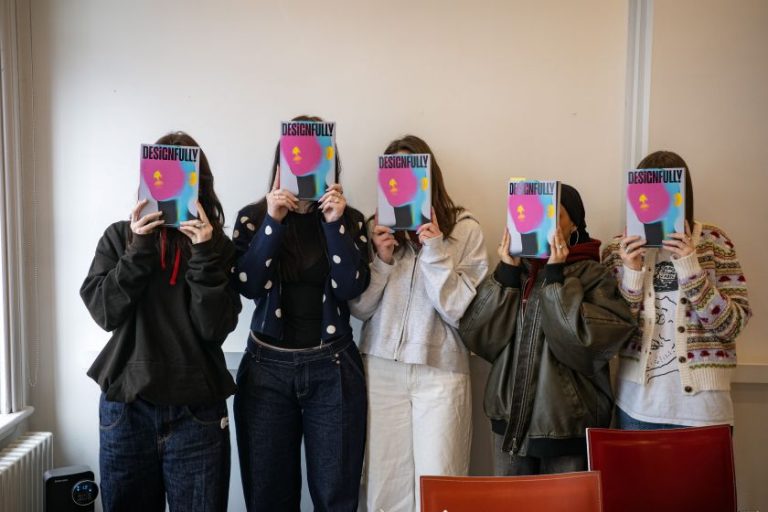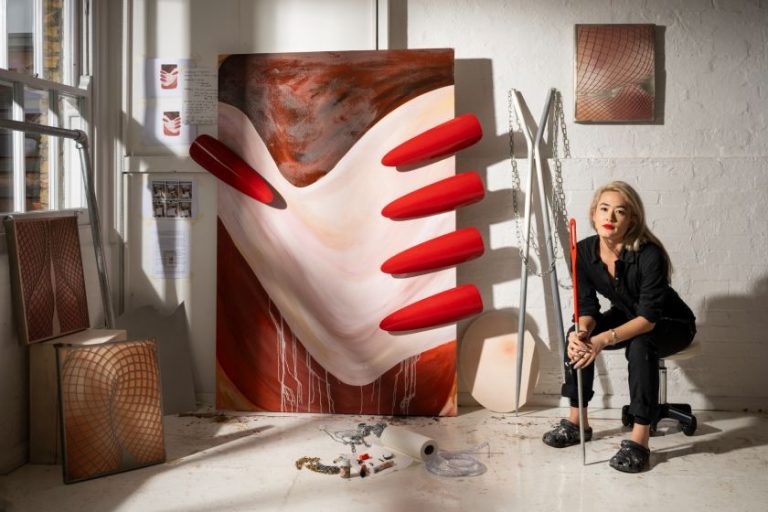Alphabet’s studio in Manchester
The Manchester studio has been making waves since 2016 with its ideas-driven approach and a guiding principle inspired by legendary designer Saul Bass. Co-founder Abbas Mushtaq shares insights on their journey.
Manchester-based branding agency Alphabet started life in 2016 and has cemented its place as an ideas-driven agency with an ethos rooted in a quote by Saul Bass, the legendary designer who’s probably best known for his iconic Alfred Hitchcock movie posters. That quote, ‘Design is thinking made visual’, “perfectly sums up how we approach every project,” says Abbas Mushtaq, Alphabet’s co-founder and creative director.
“For us, it’s all about being genuine and really getting to know what our clients want to express,” he continues. “We take the time to dive into the brief and have open conversations to fully understand their vision. Then, it’s our job to bring those ideas to life in a creative and engaging way.”
Over the near decade it’s been around, Alphabet has taken on a diverse range of projects, from crafting identities for Gen Z consumer brands to revamping corporate B2B messages, working across industries including health and wellness, beer, and AI.
For the latter, AI, Alphabet worked on refreshing the visual identity for Sova Assessment, an AI-driven platform helping companies streamline talent acquisition. The new designs looked to simplify and amplify its message “to clearly convey what makes Sova stand out in a saturated market,” Mushtaq explains.
Erba by Alphabet
Meanwhile, for Erba, a health and wellness brand focused on flavourless supplements, Alphabet has been involved from the ground up, shaping everything from strategy and positioning to packaging and brand rollout for its initial launch in Dubai.
Many clients, however, are closer to home, such as Alphabet’s work for Pekok, a new lager from Birmingham’s Indian Brewery. “The beer was designed to pair with their Indian street food, so it was important to make the brand stand out in a crowded market while keeping a premium, crafted feel with subtle nods to its Indian heritage,” says Mushtaq. Here, the studio navigated the delicate balance between creating a brand that felt contemporary yet connected to cultural roots.
As a small, independent studio, Alphabet places immense value on trust and open channels of dialogue, both internally and in how it works with clients. “While design is a big part of what we do, especially as a small, independent agency, the other half is effective project management and collaboration. The best results come from working closely with clients, staying aligned, and having open, honest communication throughout the process,” says Mushtaq.
“It all comes down to trust. Clients come to us for our expertise, so it’s important they give us the creative freedom to do what we do best. Ultimately, it’s our job to let those strengths shine.”
This level of trust and transparency has been honed over time. In the studio’s early years, Alphabet had to navigate some challenging situations where clients didn’t fully buy into their vision, “which led to a less efficient process and a weaker final result,” reckons Mushtaq, explaining that it wasn’t always easy to speak up when it seemed things were going off course, or the process became overly long-winded or complex with issues like extra development rounds that hadn’t been accounted for. “In hindsight, our original concepts often proved to be stronger,” he continues. “But with experience, we’re much more honest and vocal. We’ve learned to spot and address these issues early on, ensuring smoother collaboration and better outcomes.
PEKOK by Alphabet
“We value our clients’ input. However, it’s crucial for whoever is leading the project to trust their instincts when deciding whether to fully implement that feedback. The difference between collaboration that strengthens the result and one that weakens it comes down to trusting your gut, making the right call, and believing in what you do.”
As a small, nimble studio that remains in the single digits when it comes to staff numbers, Alphabet’s collaborative ethos is able to flourish since it isn’t tricky for the team to stay updated on projects and share their thoughts. “When we’re working on projects, we always plan for development stages, collaborating with clients to incorporate their feedback while using our own strong judgement to keep things on track and deliver the best possible outcomes,” he says. “At the end of the day, we trust each other’s opinions.”
And while trust, collaboration, and confidence are perennial essentials for designers, Mushtaq reckons things have certainly shifted over the past decade since he graduated from his graphic design course at Leeds University. One of the biggest shifts, he reckons, is that design is becoming increasingly “less constrained by print and its limitations”, a shift that he reckons opens up exciting opportunities for designers – despite being a self-proclaimed lover of print.
“I believe graphic design, especially branding, is a reflection of society and advancements in technology. Today, brand identities are increasingly shaped by the way we consume information,” he says. “We can create dynamic identities that feel like extensions of the apps and digital tools we use daily… It’s interesting to see how, as designers, we’re embracing the limitless possibilities of the digital world and creating work that reflects the way we live now.”
Sova Assessment by Alphabet
Another big change since 2014 is rather less exciting, however: it seems that while it’s never been a walk in the park setting up your own studio, today’s financial pressures – the cost of living crisis, and so on – are more intense than ever. When Alphabet started life, it was able to do so with the huge helping hand it got from a university scheme offering six months of free studio space. This, says Mushtaq, allowed the fledgling agency to focus on doing good work and defining what Alphabet would become without worrying about its financial success.
As such, his biggest advice for those looking to set up a creative agency is to keep expenses minimal. “If the pandemic taught us anything, it’s that our work adapts well to remote setups. You might not need a dedicated studio right away—meeting up in coffee shops or working from home can be a great way to get started,” says Mushtaq. “I think a lot of start-ups either fail or succeed within the first few months, so focus on building your client base and delivering quality work first. You can always transition to a studio or office space when the time feels right.”

